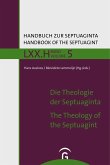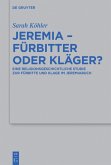Die Studie untersucht Texte, die Fürbitten für Regierungen thematisieren. Chronologischer Ausgangspunkt ist dabei das Ende des lokalen Königtums in Juda. Die Fürbitten beziehen sich daher auf die Oberhäupter der babylonischen, persischen oder hellenistischen Großreiche. Durch die Fürbitte positionieren sich judäische Gemeinden gegenüber den Herrschenden und verhandeln damit gleichzeitig ihren Platz im Rahmen der Reichsstrukturen. Dabei berufen sie sich auf eine Lokalgottheit, deren Bedeutung aus imperialer Perspektive begrenzt ist. Angesichts dieser Konstellation untersucht der Band, inwiefern judäische Gemeinden durch die Fürbitten bestehende Machtstrukturen bekräftigen oder infrage stellen, wie sie ihr politisches Selbstverständnis bestimmen und welche Herrschaftsvorstellungen sie durch die Fürbitten zum Ausdruck bringen.
[Intercessory Prayer for the Government. Negotiations for Power and Affiliation under Babylonian, Persian and Hellenistic Rule]The book examines texts concerning intercessory prayer for governments, beginning with the end of the local monarchy in Judah. Therefore, prayers of intercession focus on the rulers of the Babylonian, Persian, and Hellenistic empires. Through these intercessions, Judean communities position themselves in relation to the ruling powers, negotiating their place within the imperial structures. At the same time, they appeal to a local deity whose significance is limited from an imperial perspective. The book explores how Judean communities reinforce or challenge existing power structures through intercessory prayer, how they shape their political self-understanding and how they convey various conceptions of rulership.
[Intercessory Prayer for the Government. Negotiations for Power and Affiliation under Babylonian, Persian and Hellenistic Rule]The book examines texts concerning intercessory prayer for governments, beginning with the end of the local monarchy in Judah. Therefore, prayers of intercession focus on the rulers of the Babylonian, Persian, and Hellenistic empires. Through these intercessions, Judean communities position themselves in relation to the ruling powers, negotiating their place within the imperial structures. At the same time, they appeal to a local deity whose significance is limited from an imperial perspective. The book explores how Judean communities reinforce or challenge existing power structures through intercessory prayer, how they shape their political self-understanding and how they convey various conceptions of rulership.








